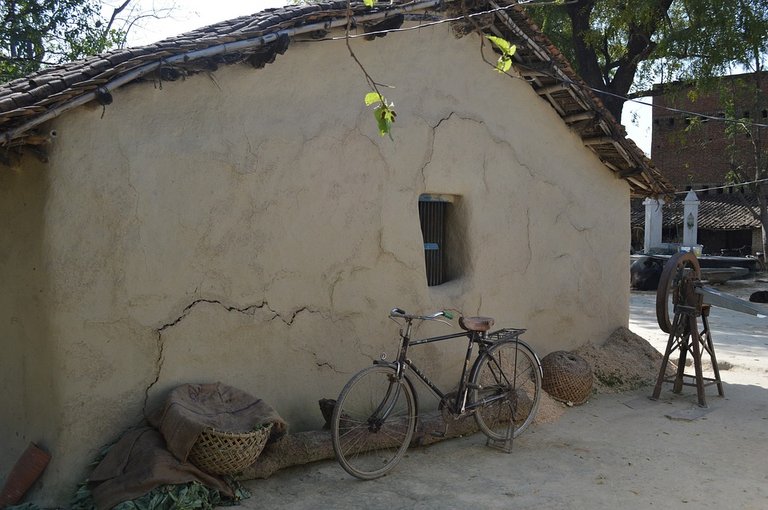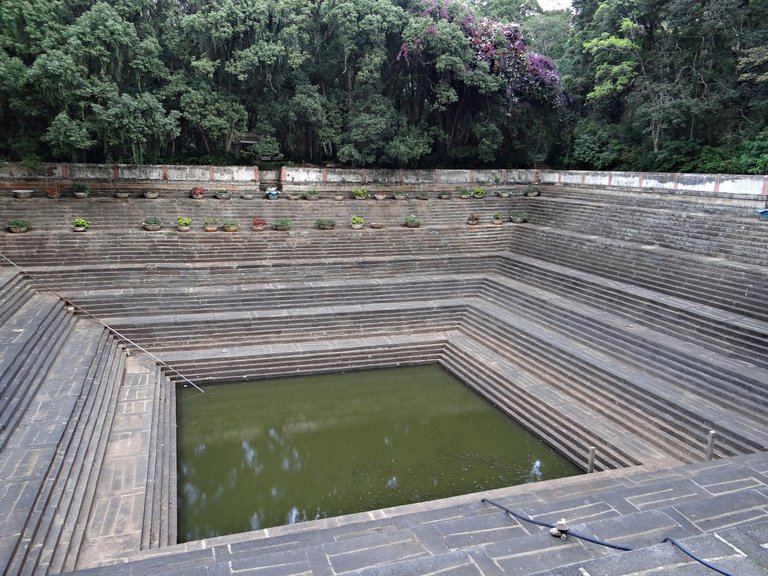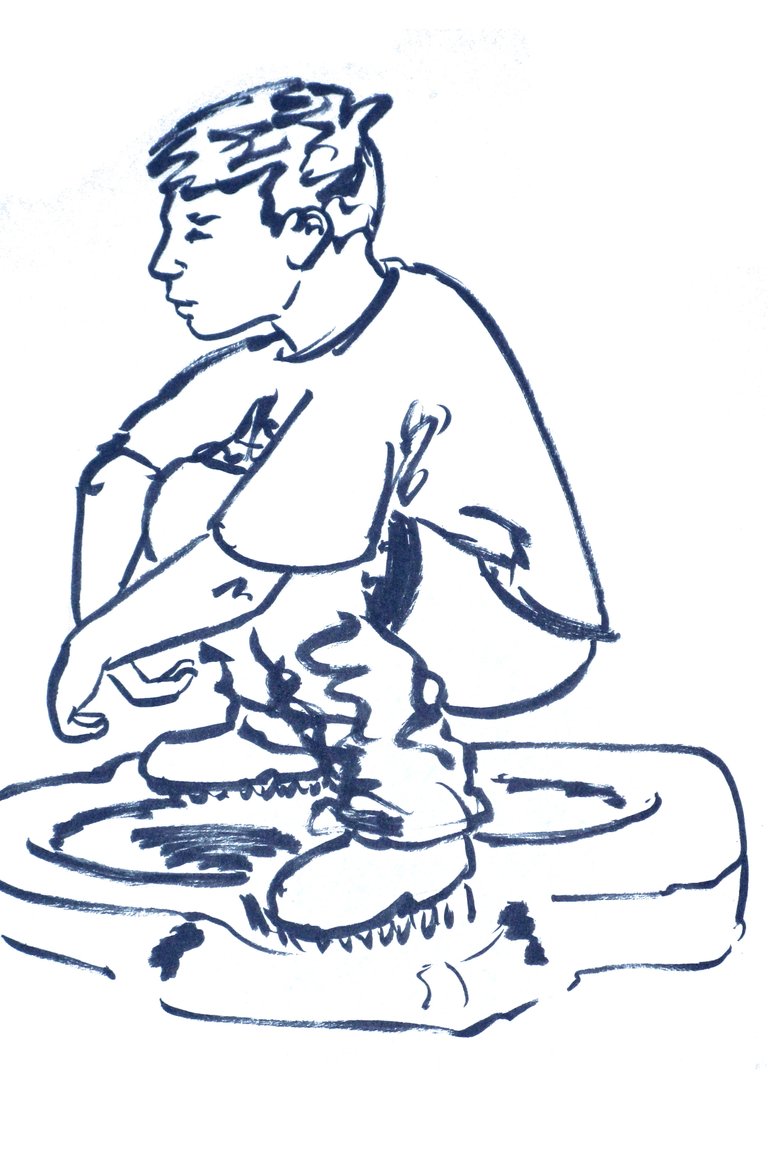Through a contest today, @geetharao wants to know about our childhood time spent at grandparents’ home. Although I am not participating in that contest, it made me reflect of my time spent at my grandparents’ place in the rural India.
What is more revealing to me about those times is the sustainable lifestyle we used to live in those years. With the so-called “development” and “modernization” in today’s urban life, we have become an enemy of our mother Earth.
Some of the striking features, I could recollect about that era are:
Kutcha Mud House

My grandma and most of the village were living in a kutcha mud house. They were never painted with any chemical wall-paints, were never pargeted with mortar. Every year, a new coating of mud mixed with some cow dung was done on floors & walls. Ceiling was covered with clay terracotta tiles supported by thick wooden logs.
Natural Airconditioning
There were no fans or aircondioning. Those houses were cool during summers and warm during winters. There was no electricity in the village. Kerosene lanterns were used after sunset for a couple of hours and everyone will sleep after that. Kitchen had a chulha (stove) made by mud in one corner. Wood was used to cook food. Therefore, whole family will eat together at the appointed hour because it wasn’t easy to set fire again and again. The ash produced after burning wood was used in cleaning utensils and hands.
Community Bathroom With Zero Water Wastage

There was no pipeline or water connection. Whole village used to go for a one kilometer walk to the village lake for taking a bath. I learned to swim in that lake only. Children there had devised fun games around bathing, diving and swimming in that lake. We used to spend a lot of time there. Until the washed cloths didn’t dry, we won’t return back. There was a step-well nearby our house, from which ladies used to fetch drinking water. All these water bodies were community resources and were maintained and taken care of by the community.
Open Toilets in Nature

We also used to go towards a hill for our daily morning calls. I find relieving in the nature more comfortable experience than behind the closed door of an urban bathroom. The wastage of water in flushing and sewerage lines are all polluting the Nature somewhere. In villages, either your poop will be consumed by some animal or it will turn into compost naturally. I remember, at my maternal grandma’s house, there was a toilet without any water connection and pipe fittings. There was no septic tank. We need to spread some sawdust powder after finishing our job. The entire defecation got collected in a basket kept under the hole. It was then collected everyday by sweepers and taken for composting.
No Need for a Dustbin or a Dumpyard
There was no kitchen waste because no packaged goods were sold in the market. We used to bring all stuff in a cloth shopping bag. Mostly all parts of green vegetables were consumed as food. If something needed to be discarded, it was offered to cows. So there were no dump yards. Cow dung in the street were collected and dried. Then it was used as kitchen fuel.
There were no asphalt or bitumen roads though roads were paved with local stones. Cycle was the only vehicle with some affluent families. So everyone used to walk to go anywhere. This kept everyone healthy and fit.
No Refrigerator Means Fresh Food Everyday
We used to buy fresh vegetables daily from the market. All vegetables were organic and locally grown. There were many wild fruits which we used to pluck on our walks around the village in our free time. It was a lot of fun being in Nature all the time.

We also used to grind our wheat and pulses fresh as every house had grinding millstones. Many village women used to grind dried rosemary leaves to earn extra money in their spare time.

My grandma also used to work on the spinning wheel. It was a good way to earn extra income by spinning cotton in your spinning wheels. So at times, I too tried running that spinning wheel for fun.
I still find that life manifolds better than today’s urban and “civilized” lifestyle.
- Do you love a village life? What life you would opt, if given a choice?
N.B.: All images used here are for reference purpose only and are sourced from copyright-free sources that do not require any attribution.

I completely agree with all the points you mention in the post. I like the post very much from my heart. They all had the great values better than today.
By saying words 'modernization' and 'civilized', we are doing anything which is not good for all in present as well as future, but most of the people like those problematic things.
This Post having great values of our life.
Thanks for your great interest & feedback in yesteryear's lifestyle!
You got my upvote! I have couple of observations to add. The well with steps on the picture is well architected. When there is more rain and the well fills out, women can fetch water from the very top. As water level decreases, women can keep going down the stairs to fetch the water. No need to have a pulley to fetch water in buckets.
Next, there is an important reason why women were assigned the task of grinding wheat and pulses. Women's uterus needs continuous exercise so it is healthy before, during and after pregnancy. The motion when using the grinding machine and making chapatis exercises the uterus and helps reduce maternal mortality rate.
I don't agree with the concept of open defecation. If you keep the bathroom clean there is no problem regarding germs. Also, Indian style toilet uses minimal water and supports water conservation. By the way, flushing system was invented by Indians.
Thanks for reading with such an interest! You're a keen observer. I agree with all your reasoning regarding step-well & grinding millstones.
Open defecation has become a problem due to over-population and over-urbanization. Otherwise, I think it to be a good practice. Even in Indian toilets, all water that goes down the flush is wasted. We don't have sufficient STPs and this sewerage water pollutes rivers & underground water. Open defecation are more environment friendly and easier to access.
Can you imagine what happens when you don't find any public toilet in the urban settings and defecating in the open is impossible? Air, water and excreting are basic necessities of life and should be free everywhere. Personally, I find the call of the Nature to be more important and pressing than thirst for water. You can't hold that in the absence of a toilet!
Oh, I wasn't aware about the invention of flushing system by Indians. Thanks for telling me about it! How do you know so much about India?
हमने विकास का अर्थ बहुत ही गलत लगा लिया है। हमने विकास का जो अर्थ समझा उसके अनुसार हमने जंगल काटकर वहाँ concrete के ऊंचे भवन खड़े करना, खुली धरती को गंदा मानकर उसे सीमेंट या तारकोल से बनी सड़क से ढक देना, कहीं पर भी कच्ची जमीन न रखकर उसे पूरी तरह टाइल्स से पाट देना, फलदार पोधो के बजाय विदेशी पोधों से अपने बगीचे बना लेना और 500 मीटर दूर के जिम तक कार से जाकर वहाँ साइकल चलाने को ही विकास समझ लिया है।
लेकिन ये विकास का मोडेल हमें प्रकृति से इतना दूर कर चुका है कि इसे जाने-अनजाने हमने इस धरती से जीवन को ही मिटा देने का मोडेल बना दिया है। अभी भी समय है अगर हम नहीं चेते तो ये विकास हमें विनाश की और ले जाएगा।
बहुत ही सुंदर शब्दों में आपने आधुनिक विकास को परिभाषित किया है। हम विनाश की ओर अग्रसर हैं और दुर्भाग्य से इसी को विकास मान रहे हैं।
I have enjoyed this village life at my dada dadi and Nana Nani, today I really miss it, because of responsibility it difficult for me to go back to this .
I can understand the compulsions of present life. But we should consider ourselves fortunate enough that we can at least cherish those moments spent with our dada-dadi and nana-nani.
Wow, what a great story. This is all fascinating to me! I think it is great that you had these experiences at your Grandmas house. I would love to live the village life for a month or two so I can fully understand what it was like :)
Yeah, I cherish those memories but unfortunately, time once gone never returns back. I'm glad that this description aroused a desire in you to live in such a setting. You still have a chance to live such a life in some villages but I dunno if you can also find Grandma there.
No doubt the old village eco-friendly life was sustainable but due to population explosion and urbanization we cannot adopt that life again. But yes some other eco-friendly sustainable lifestyle with modern developments must be adopted to save our mother earth.
I agree that all of that may not be possible to adopt in our present life but some of us can totally do that 😊. But many of these things can be adopted in our urban areas too. Unfortunately, most people don't care about sustainability.
I think of emigrating to a nice and warm country before our fossile fuels ar gone. Become a vegetarion and get old. Like Goa in India ?
Nice thoughts! But going vegetarian or even vegan is possible in any place irrespective of the climate conditions.
No doubt, Goa is a beautiful place to live. I like your choice.
really we misssed the lifestyle
Yup! I love those days of my life.
How are you @jyoti-thelight? Seeing you after a long time!
Nice pictures @xyzashu, thankyou for your sharing 😍
Thank you for your continued support of SteemSilverGold